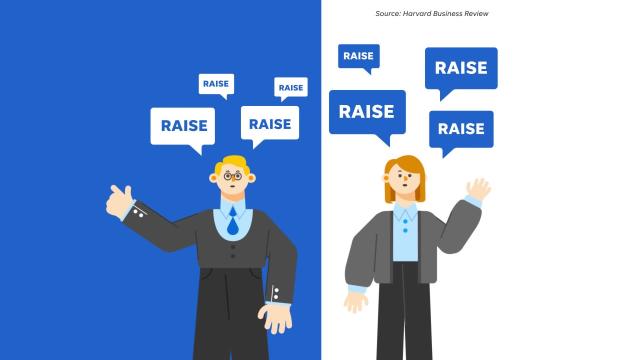
Clarissa Horsfall holds a sign reading, "Equal Pay," as she joins with others during 'A Day Without A Woman' demonstration in Miami on March 8, 2017.
Jessica Guynn
Tue, September 27, 2022
Employers in California will have to post salaries for job listings under a new law signed by Gov. Gavin Newsom Tuesday.
The law takes effect on Jan. 1.
“This is a big moment for California workers, especially women and people of color who have long been impacted by systemic inequities that have left them earning far less than their colleagues,” said state Sen. Monique Limón, a Santa Barbara Democrat, in a statement to USA TODAY.
Limón says the new law will help narrow the wage gap by requiring California employers with 15 or more employees to disclose salary ranges for all job postings.
Women and people of color are more willing to negotiate and are more successful in those negotiations when salary ranges are disclosed, according to research from the National Women’s Law Center.
One of the law's supporters is Newsom’s wife, First Partner Jennifer Siebel Newsom.
“By requiring California employers to collect more substantial pay data we will continue to create more opportunity for women and people of color who are disproportionately underpaid, overworked, and barred from professional and economic opportunity,” she said in a statement.
Why so few Hispanic women make it to top: Only two Latinas have been CEO of a Fortune 500 company.
2 years after George Floyd pledges: Black women still denied top jobs at largest companies. This is why
The new California law imposes penalties on employers for failing to report pay scales data to the state.

"Transparency is key, but so is accountability," said Joanna Kim-Brunetti, chief legal officer and EVP of regulatory affairs for Trusaic, a workplace equity software provider. "This penalty provision will ensure compliance and, with that, accountability."
Equal Rights Advocates praised the new law as a "blueprint for other states to follow."
"We are thrilled to see that continued public awareness about the need for pay transparency has led to this bill becoming law," said Jessica Ramey Stender, policy director and deputy legal director.
California joins other cities and states in enacting laws to force employers to hand over more compensation information. Employers oppose the growing movement, saying they are proponents of pay transparency and equity but don’t agree with how states and cities are going about it.
The California Chamber of Commerce opposed the bill and put it on its “Job Killers” list, saying it would encourage more lawsuits against businesses and make hiring “more burdensome.”
"The additional burdens and costs this proposal would create will limit an employer’s ability to offer higher wages and benefits to new or existing employees and discourage growth or expansion in California," the Chamber of Commerce wrote in a letter to Newsom.
'We shouldn't have to tolerate it': More Asian Americans are calling out the racism they experience at work
Michelle Holder, a labor economist whose research focuses on the Black community and women of color, says she expects more states and localities to embrace initiatives addressing pay disparity.
“It’s obviously gaining traction,” Holder told USA TODAY in February. “I am hopeful this momentum continues at the local and state levels, and perhaps works its way up to the federal level at some point.”
PPP loan forgiveness vs student debt relief: Why you shouldn't scoff at Biden debt relief just because you paid yours off
What’s behind the national push for pay transparency? Pay equity.
A California study found that women made $46 billion less than men in similar positions in 2020. People of color were paid $61 billion less than white workers.
Women and people of color have historically been offered significantly lower salaries, and corporations profit from underpaying them, said Holder, president and CEO of the Washington Center for Equitable Growth and associate professor of economics at the John Jay College of Criminal Justice in New York City.
At the current pace, women won’t close the pay gap with men until 2059, according to the Center for American Progress. And it could take a century for Black and Hispanic women.
'We are a broken people': The importance of Black homeownership and why the wealth gap is widening
Disparate pay has widened the wealth gap. The median Black household owns nearly 90% less wealth than the median white household, according to Goldman Sachs research on Black women. Lower levels of earnings for Black households drive much of the gap.
Federal legislation that would have made it harder for employers to pay women less than their male co-workers was blocked last year by Senate Republicans who said the Paycheck Fairness Act would primarily benefit trial lawyers, not women.
This article originally appeared on USA TODAY: New California law requires companies to post salaries for jobs
No comments:
Post a Comment